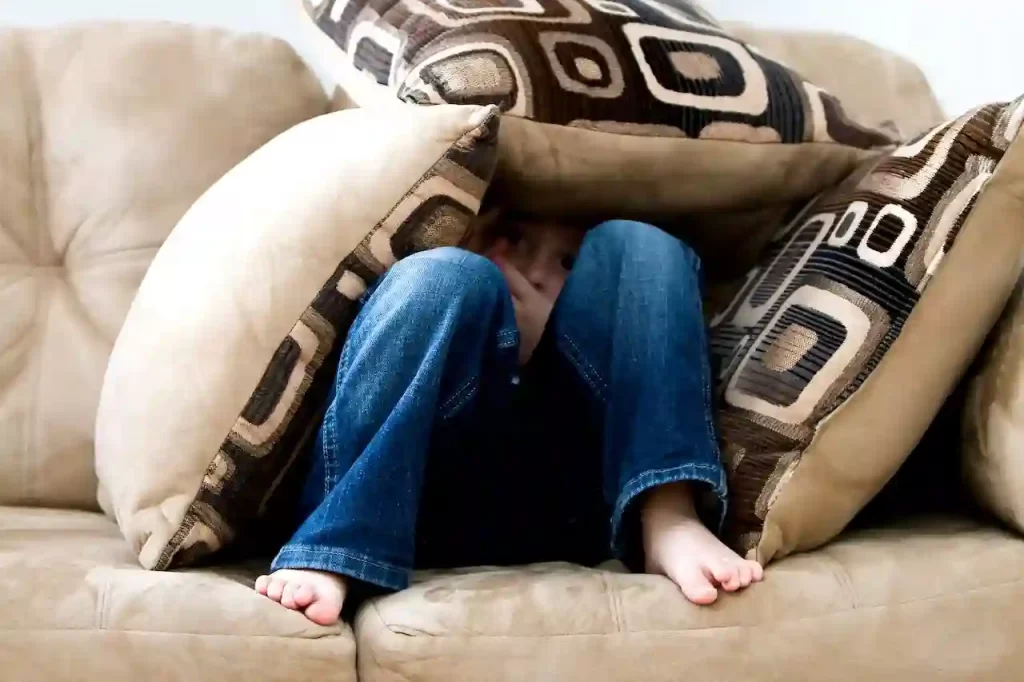The concept of minimalism has been around for centuries, but it has recently gained popularity in modern times. Essentially, minimalism is the practice of living with only what you need, and nothing more. This could be applied to your possessions, your diet, your schedule, and more.
In a world that constantly tells us to consume and accumulate, minimalism is a refreshing approach that prioritizes simplicity and intentionality. It encourages us to reevaluate what truly brings us happiness and fulfillment, and to let go of the excess that only serves to clutter our lives.
Minimalism has roots in several different cultures and time periods, from Buddhist teachings on non-attachment to the Bauhaus design movement of the 1920s. However, it was in the 1960s and 70s that minimalism began to take shape as a distinct art movement, with artists like Donald Judd and Dan Flavin creating works that pared down form and material to their most basic elements.
Today, minimalism has expanded beyond the realm of art to become a lifestyle philosophy embraced by people from all walks of life. Whether you’re seeking to simplify your home, your finances, or your mindset, minimalism offers a way to cut out the noise and focus on what really matters. So, if you’re curious about the benefits of living with less, keep reading to learn more about the minimalist philosophy of the cheaper your pleasures, the richer you’ll be.
“Not what we have but what we enjoy, constitutes our abundance.”
– Epicurus
The Minimalist Philosophy
The minimalist philosophy is a way of life that has been gaining popularity in recent years. At its core, minimalism is about simplifying your life and focusing on what really matters. It’s about cutting out the excess and living intentionally.
The minimalist philosophy is based on the idea that we don’t need a lot of material possessions to be happy. In fact, the more stuff we have, the more stressed and overwhelmed we can feel. By simplifying our lives and focusing on the things that are truly important, we can experience more happiness and fulfillment.
Living intentionally is a big part of the minimalist philosophy. It’s about being deliberate with your time and energy, and focusing on the things that truly matter to you. When you live intentionally, you are more likely to achieve your goals and find happiness and fulfillment.
Minimalism and happiness are closely related. By simplifying your life and focusing on what really matters, you can experience more joy and contentment. When you let go of the things that don’t bring you joy, you make space for the things that do.
Overall, the minimalist philosophy is about living intentionally and focusing on what truly matters. By simplifying your life and cutting out the excess, you can experience more happiness and fulfillment. In the following sections, we will explore the benefits of minimalism in more detail.
The Cheaper Your Pleasures, The Richer You’ll Be
We live in a world where the idea of happiness is often linked to money and material possessions. However, studies show that the opposite may be true. It turns out that the cheaper the pleasures you enjoy, the richer your life can be. Let’s explore this concept further.
The idea of cheaper pleasures is rooted in the minimalist philosophy, which emphasizes the importance of intentional living and finding happiness in the simple things. Cheaper pleasures are activities that don’t require a lot of money or material possessions but can bring immense joy and satisfaction.
Examples of cheaper pleasures include spending time with loved ones, reading a good book, going for a walk in nature, cooking a meal from scratch, or simply taking a nap. These activities may seem mundane, but they can provide a sense of fulfillment that material possessions can’t.
Studies have shown that people who prioritize experiences over material possessions are happier and have a higher sense of well-being. This is because experiences, especially those that involve spending time with loved ones or engaging in activities that bring us joy, create lasting memories and a sense of connection.
Moreover, cheaper pleasures can also lead to a more sustainable and fulfilling life. By reducing our reliance on material possessions and expensive activities, we can reduce our impact on the environment and live a more intentional life.
the concept of the cheaper pleasures may seem counterintuitive, but it can lead to a richer and more fulfilling life. By prioritizing experiences over material possessions and finding joy in the simple things, we can cultivate a sense of contentment and happiness that money can’t buy.
Embracing a Minimalist Lifestyle
Embracing a minimalist lifestyle can be a powerful way to simplify your life and create a more intentional, fulfilling existence. If you’re ready to declutter your mind, home, and schedule, there are many tips and strategies you can use to make the transition to a minimalist lifestyle smoother and more successful.
One essential tip for embracing a minimalist lifestyle is to start small. You don’t need to overhaul your entire life in one fell swoop. Instead, start by decluttering one room or area of your home, and then gradually work your way up to larger areas. This can help you avoid feeling overwhelmed and allow you to enjoy the process of simplifying your life.
Another strategy for embracing a minimalist lifestyle is to focus on quality over quantity. Instead of buying lots of cheap, low-quality items, invest in a few high-quality items that you truly love and will use for years to come. This can help you reduce clutter and create a more intentional, meaningful life.
Other tips for embracing a minimalist lifestyle include practicing gratitude, setting boundaries around technology and social media, and finding joy in the simple pleasures of life.
By decluttering your life, focusing on what truly matters, and embracing a more intentional way of living, you can experience the many benefits of a minimalist lifestyle, including increased happiness, greater contentment, and a stronger sense of purpose. So why not give it a try and see how a minimalist lifestyle can transform your life for the better?
Minimalism and Financial Freedom
Minimalism and financial freedom are two concepts that go hand in hand. By embracing a minimalist lifestyle, you can significantly reduce your expenses and achieve greater financial freedom.
Minimalism is all about simplifying your life, getting rid of the unnecessary, and focusing on what truly matters. When it comes to finances, this means cutting back on expenses that don’t add value to your life and investing in things that do.
By minimizing your possessions, you can avoid the temptation to accumulate more things, which can be a significant drain on your finances. You’ll also find that you’re more content with what you have, and you’re not always looking for the next thing to buy.
Minimalism also encourages you to be intentional with your spending, focusing on quality over quantity. This means investing in things that will last longer and bring you more joy, rather than constantly buying cheap, disposable items that need to be replaced frequently.
Moreover, minimalism helps you to save more money, which can be used to achieve financial goals such as paying off debt, building an emergency fund, or investing for the future. By reducing your expenses and living below your means, you can achieve financial independence and the freedom to pursue the things that matter most to you.
Minimalism and financial freedom are two sides of the same coin. By embracing a minimalist lifestyle, you can simplify your finances, reduce your expenses, and achieve greater financial freedom.
The Role of Mindfulness in Minimalism
Mindfulness and minimalism go hand in hand. They both share a common goal of living in the present moment and being intentional about our actions. Minimalism is about simplifying our lives by getting rid of excess and focusing on what truly matters.
Mindfulness is about being present in the moment and fully engaged in the experiences of life. Together, they create a powerful combination that can lead to a more fulfilling life.
Incorporating mindfulness into a minimalist lifestyle can help us stay focused on our goals and avoid distractions. Mindfulness helps us to be more aware of our thoughts, feelings, and actions, and to live in the present moment. When we are mindful, we can make more conscious choices about what we keep in our lives and what we let go of.
Practicing mindfulness can also help us to be more content with what we have. We often get caught up in the cycle of wanting more, but mindfulness teaches us to appreciate what we already have. When we are mindful, we can fully enjoy the pleasures of life without feeling the need to constantly acquire more.
Furthermore, mindfulness can also help us to cope with the challenges that come with minimalism. Decluttering and simplifying our lives can be difficult, but mindfulness can help us to stay focused on our goals and remain motivated when things get tough.
mindfulness is a powerful tool for those who embrace minimalism. By incorporating mindfulness into a minimalist lifestyle, we can stay focused on what truly matters and find contentment in the present moment.
Additional points
Minimalism isn’t just about living with less stuff; it also has a positive impact on the environment. In today’s world, where climate change and environmental degradation are major concerns, embracing a minimalist lifestyle can make a significant difference.
When we practice minimalism, we reduce our consumption of goods, which in turn leads to reduced waste. By reducing the amount of waste we produce, we are also reducing the amount of waste that ends up in landfills, oceans, and other natural habitats. This can help to reduce pollution and preserve the environment for future generations.
In addition, when we choose to live a minimalist lifestyle, we tend to focus on sustainable and environmentally-friendly products. We are more likely to choose products that are made from natural and renewable resources, such as bamboo or organic cotton, rather than products that are made from non-renewable resources, such as plastic.
Minimalism can also lead to a reduction in carbon emissions. When we consume less, we also tend to travel less and use less energy in our homes. This can result in a lower carbon footprint and a more sustainable way of living.
Minimalism can have a significant impact on the environment and can be a powerful tool in promoting sustainability. By reducing our consumption, choosing sustainable products, and minimizing waste, we can contribute to a healthier planet and a more sustainable future.
Conclusion
In conclusion, minimalism is more than just a lifestyle trend. It is a philosophy that can bring about numerous benefits to our lives. By embracing minimalism, we can declutter our lives, reduce stress, and live more intentionally. We can also save money and achieve financial freedom, while embracing mindfulness and sustainability.
Living a minimalist lifestyle may seem challenging at first, but it is achievable with the right mindset and strategies. By focusing on cheaper pleasures and prioritizing what truly brings us joy, we can lead richer and more fulfilling lives.
In a world where material possessions are often seen as a measure of success, it can be easy to forget that true happiness comes from within. By embracing minimalism, we can shift our focus from accumulating things to cherishing experiences and relationships.
So, if you want to simplify your life, reduce stress, and achieve financial freedom, consider embracing a minimalist lifestyle. Remember that it is a journey, and it may not happen overnight. But with patience, persistence, and a commitment to living intentionally, you can create a life filled with abundance, purpose, and joy.




